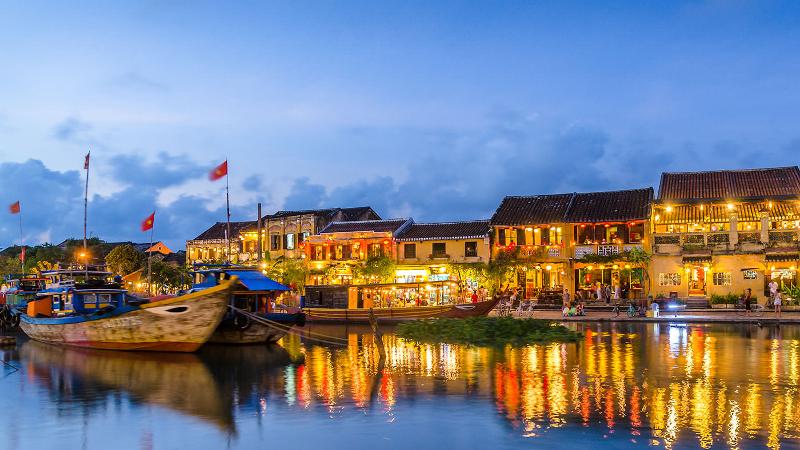Hoi An authorities say only locals can open homestays
 |
| Hoi An Town |
Under the new regulation, the owners of homestays must be Hoi An residents whose husbands or wives are not foreigners. At least two generations of families live in the houses that serve as homestays.
The regulation, as explained by Hoi An authorities, aims to preserve and promote the local culture, traditions and values.
The decision has been applauded by locals but criticized by tourism experts.
Local people point out that hotels and resorts can be developed by investors from different localities, but homestays must be developed by locals with families living there. They argue that if local people don’t live with travelers in the houses, these must not be called ‘homestays’.
| Allowing local people to have homestays is a way to solve the problem of ‘community tourism’. This helps locals increase their income by providing services, while maintaining their culture, land and assets. |
Allowing local people to have homestays is a way to solve the problem of ‘community tourism’. This helps locals increase their income by providing services, while maintaining their culture, land and assets. Locals can also maintain their major job without having to sell land or work as hired workers.
Meanwhile, analysts have criticized local authorities who are protecting local tourism in an unreasonable way. They say in a ‘non-smoke industry’, many different ideas and a healthy competitive environment will enhance development.
Lawyer Kieu Anh Vu from the HCM City Bar Association believes that the regulation set by the Hoi An authorities is contrary to the provisions in the Investment Law and Tourism Law.
“The new regulation is illegal and unfeasible. I hope that competent agencies will reconsider the regulation to ensure harmony in the preservation of local culture and the people’s right to do business according to the laws,” he said.
Phan Dinh Hue, director of Vong Tron Viet travel firm, said travelers expect to live with the family in a homestay to learn more about local culture.
However, he doesn’t advocate the idea of prohibiting investors from other localities to develop homestays in Hoi An. He knows several Vietnamese-foreigner couples who have opened well-run homestays. One of them has good understanding about local culture, while the other knows what foreign travelers like.
“In this case, foreigners act as ‘culture connectors’,” he said.
“Hoi An should not set strict requirements on the nationality of homestay owners, but should choose a way to develop homestay services that are attractive to travelers,” he said.
What the stars mean:
★ Poor ★ ★ Promising ★★★ Good ★★★★ Very good ★★★★★ Exceptional
Latest News
More News
- Manila becomes a new check-in destination for Vietnamese youth (December 11, 2025 | 18:07)
- Vietjet launches mega year-end ticket promotion (December 10, 2025 | 11:33)
- Dalat leads Vietnam’s 2025 search trends (December 09, 2025 | 13:44)
- Vietnam welcomes record wave of international visitors (December 09, 2025 | 13:43)
- Vietjet launches daily Manila flights to celebrate year-end festive peak season (December 05, 2025 | 13:47)
- The destinations powering Vietnam’s festive season travel demand (December 04, 2025 | 18:33)
- Vietnam named among the world’s most exciting winter destinations (December 04, 2025 | 15:10)
- Phu Tho emerges as northern Vietnam’s new tourism hub (December 01, 2025 | 17:00)
- Vietjet completes Airbus A320/A321 updates ahead of deadline (December 01, 2025 | 09:49)
- Vietjet resumes Con Dao flights from early December (November 28, 2025 | 15:24)
















 Mobile Version
Mobile Version